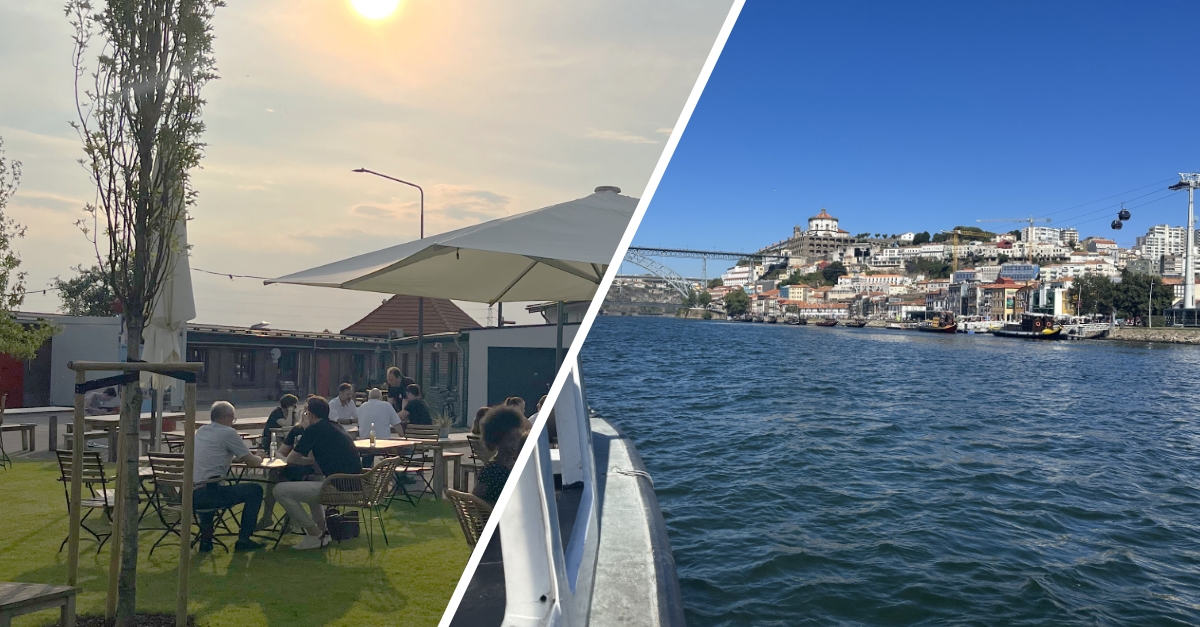Industrial Transformation – The core of HANNOVER MESSE, 2024 with the focus on ‘Energizing A Sustainable Industry’. At this year’s trade fair, leading global companies presented the latest technologies for the sustainable optimisation of production processes and energy supply. We were particularly excited about the topics surrounding the advanced application possibilities of automation & AI in industry as well as sustainable use cases within private 5G networks.
As an IT solution & service provider, we support various industries in exploiting sustainable savings and optimisation opportunities with digital solutions. Automated dashboards, digital twins and 5G connectivity solutions for autonomous machines and devices as well as remote maintenance options are just some of the solutions we have implemented for our customers to increase the use of sustainable processes.
In this article, we share our highlights from the current industry topics at HANNOVER MESSE and take a look at exciting AI use cases:
Trends & challenges: AI in industry
HANNOVER MESSE offered us valuable opportunities to make new contacts, find out about industry trends and expand our knowledge of the current state of innovation. Two developments in particular stand out as drivers of industrial transformation and the future, on which HANNOVER MESSE organised a large number of in-depth conferences.
On the one hand, the statutory requirements are coming ever closer: net greenhouse gas emissions are to be reduced by at least 55 per cent below 1990 levels by 2030 and be climate-neutral by 2050. Every single company is obliged to minimise its carbon footprint and reduce CO2 emissions.
Both the transformation of existing processes and resources used in areas such as production, logistics and transport, as well as new project plans for the digitalisation of products, services and company processes, must be considered from a sustainability perspective.
On the other hand, innovations relating to AI are developing rapidly and are being used in practice in numerous ways as part of ‘Industry 4.0’. Maintaining competitiveness is the top priority for many businesses and companies. AI, for example, was on the back burner for many years, but today its importance is increasing due to trends such as ChatGPT – according to the analysts from IoT-Analytics in Hamburg, AI is now one of the top 5 topics for decision-makers.
AI use case examples to promote sustainability
In addition to the switch to renewable energies, digital solutions and automation play an important role in process optimisation and data-based sustainability strategies. The use cases for AI in industry are wide-ranging, so we will limit ourselves below to examples that are also playing an increasing role in our customer projects:
- Digital twins: More and more manufacturers are optimising the use of their limited time and resources by controlling production systems remotely. On-site operations can thus be sustainably minimised, as digital twins are based on real data and enable monitoring, remote maintenance and 3D simulations for CO2 saving options for process improvement.
- BI dashboards, analytics & sustainability planning: BI dashboards and analytics visualise data that directly influence CO2 emissions, such as production and transport information. AI can also be used to analyse indirect influences such as the electricity and water consumption of office buildings, create key figures and compare them with target values.
- Dynamic energy monitoring systems: Intelligent energy monitoring systems reduce energy consumption and costs by dynamically adjusting machine operation in real time, based on environmental data such as humidity, to improve energy efficiency.
- AI-controlled production facilities: Private 5G networks enable real-time data processing, which is essential for monitoring and controlling industrial processes. AI can analyse production data in real time and predict machine failures in order to minimise downtimes and make production processes more efficient.
Customised solutions, whether in the form of digital dashboards, apps or autonomous machines, devices and remote maintenance options in private 5G networks, are increasingly replacing paper-based and location-based processes. Hardware can also be systemically reduced or upgraded to allow various software integrations and make individual parts easier to replace and upgrade.
Outlook: Further development of Industry 4.0
The next steps in Industry 4.0 will include AI recommendation systems in production, new approaches in robotics, virtualisation of hardware and digital twins. Companies rely on collaboration with IT experts to create the relevant data, processes and transparency as the basis for the new requirements for climate-neutral processes.
COCUS supports companies in the fulfilment of sustainability goals and state regulations. We aim to combine feasibility with quality – this enables us to create low entry barriers for the necessary ecosystems. Together, we create company-wide sustainability based on automated digital solutions and networking down to the last corner with the highest standards and best practices.








